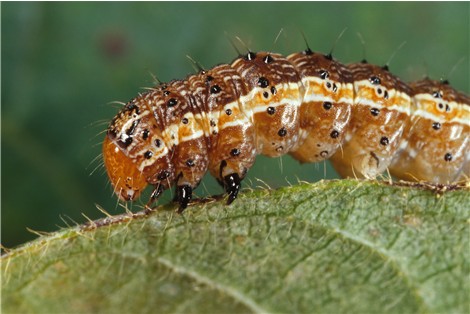This Small Pesticide-Resistant Insect Has The Potential To Wreck The World’s Food Supply

Meet the fall armyworm: a species of moth that has the potential to wipe out significant swaths of our world’s food supply.
Just ask Africa what they think about it. After the fall armyworm made its way from South America over to Africa in 2016, Food Processing-Technology.com reports that approximately 20 percent of the continent’s corn crop has been wrecked by this pest in just the past eighteen months. Considering that corn is the staple food for millions of Africans, that drop in yield could be devastating to the continent and the armyworm isn’t even done causing damage yet.

The fall armyworm is so potent because in its caterpillar stage, it burrows into crops before eating them from the inside out. This approach means that contact insecticides can’t get to the armyworm and farmers often won’t be able to see what’s happening to their crops before it’s too late, making it hard to identify and control this particular pest.
The fall armyworm has already been doing damage across the Americas and Africa and a fearful prediction exists that it will make its way over to the Middle East, then Europe and Asia within a short period of time. If that happens, the world’s corn supply could be in jeopardy as the fall armyworm burrows its way into plants across the entire globe.

To battle this scourge of a pest, scientists are looking for solutions. In the United States, GMO corn, also known as Bt-corn, has been the solution of choice since it produces a protein that kills the armyworm. However, resistance to this particular protein has begun to evolve, meaning that the genetic modifications may only be useful for a short amount of time before even American corn falls victim to this devastating bug. A virus that targets the armyworm has been developed to spray onto corn, but no approach to get it inside of the corn plants has been developed yet.
Hopefully, some more permanent solutions can be developed soon, as our global food supply may very well depend on it.






















